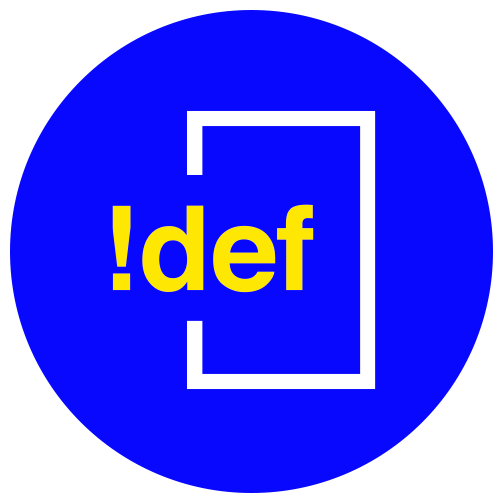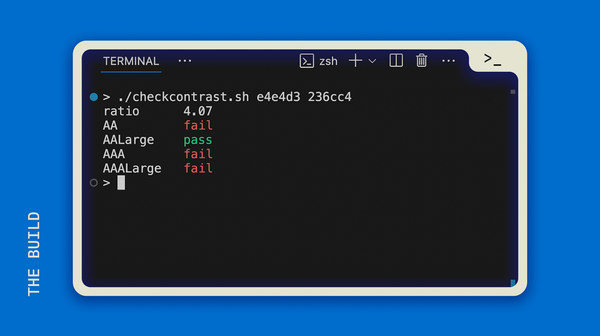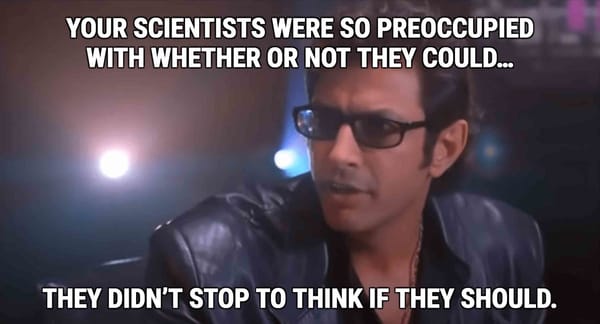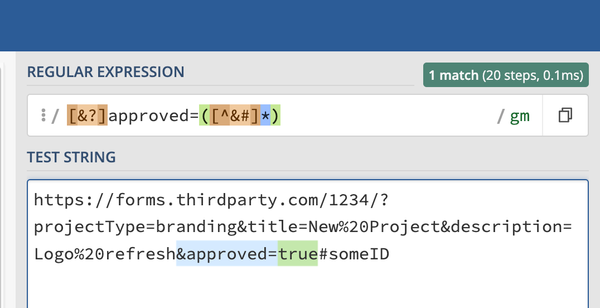The Problem with Creativity...

...is how it has been wrongly assigned to very specific positions and executions.
"Whoa, did you draw that? I can't draw—even my stick figures are bad."
—Everyone, ever
As an artist, the worst part of showing my work—besides the showing the work part ;)—is the way people self-deprecate in response.
This doesn't happen as much when the artist isn't present, but it does seem to be a problem with art and our current culture. It makes people judgmental, and not in the constructive way that critiques of the art piece can be.
They, the viewer, are judging themselves—their artistic skills—instead of appreciating the piece in front of them.
And that approach also bleeds into our work, adding artificial limitations on our problem-solving abilities.
What it comes down to is that creativity has nothing to do with art or design or even anything visual at all.
Etymology to the Rescue
Creative: "having the quality or function of creating,"
Create: "to bring into being,"; "arise, be born, increase, grow,"
Sources:
- https://www.etymonline.com/word/creative#etymonline_v_29034
- https://www.etymonline.com/word/create#etymonline_v_320
Do you see how far off we've pushed this concept? To create is to be human. Everyone is creative, regardless of artistic skill, musical ability, or even job title.
When you solve a problem, when you discover something, when you do anything that increases or grows, or when you do something that "becomes," where previously it was not, that is creativity. That is the work of humanity.
Sorry, "designers," you don't have a monopoly on creativity. We all do.
Why Does This Matter?
Not only is it stifling to tell yourself, "I'm not creative," it's also untrue.
When we get out of self-judgment mode, we make better decisions, we contribute more, we bring more ideas to the table.
Creativity is what has brought us the technology we use today. It's the basis for all invention. By democratizing creativity as a human trait, rather than a prodigious gift for a precious few of us, we increase our potential.
We live in a complex world, intermixed with complex systems (good and bad), and this complexity demands more of us if we want to solve big problems. By ignoring or even smashing people down—keeping their creativity out of their reach—we severely limit our ability to create the solutions we seek.
So don't keep your own creativity out of reach either—it hurts all of us when you remove yourself.
Draw It Out
Forgive the pun. But really, let's look at ways we can draw out our creativity.
Universal Principles
- Add constraints
- Put a time-limit on your creative exercises
- Set up enough rules to help you avoid getting lost in possibility
- Never judge during creation
- If what you're working on doesn't seem to be doing what you want, start a new version, but don't tell yourself how bad you're doing
- You aren't what you create
- Feel free to make judgment calls after you've compiled all of your attempts/solutions. "Editing" is a vastly different exercise than "writing."
Tangrams
One of the most accessible creative exercises. You can make your own tangram pieces with a single sheet of paper.
These shapes can be used however you'd like, but the classic rules are to not overlap them (put them next to each other, but not on top of each other).
Create shapes by rearranging the pieces ("tans"). You can try looking up tangram puzzles where you have to figure out how to replicate the image shown with the pieces you have.
This really gets the creative juices flowing, because it's problem-solving using constraints.
Comic Strips
Create your own tiny comic strip. Draw three boxes and try to tell a story. You can write words only, you can draw, you can just put in symbols.
Keep the boxes pretty small—that should help with your focus, like zooming in on a camera. Comic strips aren't graphic novels. Nice and simple!
Make as many as you'd like. Be funny or be serious. Political cartoons have always had a problem-solving nature—whether raising awareness or calling out injustices.
This is a two-fer since comedy is itself a creative act.
Sketches
The simplest problem-solving tool. Sketching is not about artistic skill, it's about expressing the most rough, most simplified idea that might work.
Grab a paper and pencil and draw or write out your thoughts. Try a little diagram of how some process might work.
Use shapes and arrows or go ahead and sketch out forms and images.
Use an audio recorder and talk it out if you don't want something visual.
Sketching can improve the clarity of your thoughts, even if you never use or share what you've sketched.
Create the Future
I'm 100% convinced that creativity will be the most in-demand, necessary skill starting right now. Saturation, out-sourcing, AI, and competition are spiking, and it's creativity that can pull you out of the crowd or make something work.
Start small if you're uncomfortable. Start by identifying as a creative person.
Creativity isn't genius. Creativity isn't magic. Creativity isn't unnatural to you.
It shows up over time and with practice.
Now, go and create!





